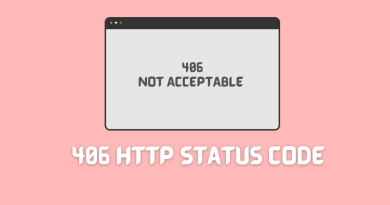What Is Bitcoin and How Does It Work (Simple Explanation)
Bitcoin is a decentralized digital currency that can be sent to anyone around the world. It was first introduced by Satoshi Nakamoto (a pseudonym) in 2009 and has been gaining popularity ever since. Bitcoin is unique in that it doesn’t exist in the physical world. There are no actual coins or notes like fiat currencies (dollars, euros or pound). The bitcoin currency only exists online and is recorded using blockchain technology (a public ledger). Digital wallets are used to keep track of bitcoin balances which are always expressed as a bitcoin value. In this article you will learn what bitcoin is all about as well as how it works.
How does bitcoin work
We will try to explain with simple words how bitcoins work even though this technology is really sophisticated. Bitcoin is a decentralised, digital currency. It is a type of cryptocurrency in which encryption techniques are used to control the generation of units of currency and verify transactions.
Digital wallets are used to store bitcoins and make those transactions. There are no bitcoin notes or coins like traditional currency. It is virtual currency which exist on your computer or mobile phone. It is completely decentralised with no central authority, meaning no one controls it or changes anything about it. It isn’t printed by governments or traditional banks either. Instead, bitcoin is created digitally by a community of people who are known as miners.
To send and receive bitcoin you don’t need bank account. You only need your wallet address and the wallet address of the person or business that you are sending bitcoin to which are created using bitcoin software. Moreover, in contrast to bank transaction which requires your identity, bitcoin transactions do not need to be tied to the owner’s real identity. Bitcoin system allows people to buy and sell bitcoin anonymously.
You have to make sure you are sending to a bitcoin address because it’s protocol dictates that bitcoin can only be sent to bitcoin wallet addresses. The bitcoin network makes sure that all the details of each transaction are correct before proceeding. Every transaction must be cryptographically signed using a special private key known only by the wallet owner. They can be transferred only if this signature is validated which proves the action was done by the owner. A bitcoin transaction typically gets one confirmation within 10 minutes, however this time is subject to the bitcoin network’s congestion.
Decentralisation and Blockchain technology
Decentralisation is bitcoin’s key feature. It means bitcoin has no central server or point of authority. The bitcoin network is made up of thousands of nodes (decentralized network) connected to the internet which verify any transaction independently to ensure that they are accurate and secure before approving them. This process does not require the need for any third parties like central bank or clearing houses. All transactions between digital wallets are stored on a common database known as blockchain, which is also shared on bitcoin nodes around the world. Transactions on blockchain are irreversible and they cannot be falsified or changed once they have been confirmed.
How to store your bitcoins
The wallet allows you to send, receive and store bitcoin. An easy explanation is to say that bitcoins are stored in digital wallets. However this is not totally true. To be more specific the wallets do not store bitcoin themselves, but instead they only hold bitcoin addresses, and private keys. Your bitcoin balance is recorded on the blockchain and you can update it (receiving or sending bitcoins) only by providing the private key which is safely stored in your wallet and verifies that you are the owner of the bitcoin balance recorded on the blockchain ledger. The bitcoin balance is the number of bitcoin that are stored on network at a particular bitcoin address.
A wallet address looks something like this : 1Mxd4QvWGibU7pcumYg8ELdexxsRtDAK6N which you need to know before receiving or sending bitcoin.
There are two types of wallets:
Hot wallets
Hot wallets are wallets which are online. They are the most user-friendly bitcoin wallets but they pose security risks because bitcoin exchanges or web servers can be hacked by cybercriminals. You can create a hot wallet on cryptocurrency exchanges platforms such as Binance, coinbase, crypto.com.
Cold wallets
Cold wallets are wallets that store bitcoin offline on your computer hard drive or other types of devices such as ledger which makes them more secure.
Bitcoin security
The network is peer-to-peer and transactions take place between users directly, without an intermediary . These transactions are verified by network nodes through cryptography and recorded in the blockchain as mentioned earlier. Bitcoin was designed to be secure and bitcoin wallets protect unauthorised access. It’s security problems are mainly related to using hot wallets on unsafe online storage devices which can steal bitcoin keys , malware and viruses. There have been many incidents where bitcoin exchanges had their security breached resulting in loss of bitcoin. However, the most secure method to keep bitcoins and any cryptocurrency is through hardware wallet because your private key is not tied to the network as it stores it offline.
The bitcoin network guards against double-spending , a problem that would allow an attacker to spend the same bitcoin twice. The bitcoin protocol includes a rule that a bitcoin cannot be spent before it has been received, and this rule is enforced by all the participating computers which means bitcoin spends are extremely difficult to perform. If someone tries, their bitcoin client will automatically reject the attempt and inform them that bitcoin double spend is not permitted.
Moreover, the transaction of a single node are validated but many other nodes on the network. If a node try to make changes on the blockchain, the other nodes will reject it as it would be invalid because transactions are irreversible. The nodes who are making invalid transaction are penalised and banned from the blockchain making the system more secure.
Bitcoin regulation
There is a lot of bitcoin regulation going on especially in the bitcoin exchanges. The bitcoin exchanges are required by law to have ID of bitcoin users which can be accessed by governments and banks. Governments want bitcoin regulation because bitcoin transactions can be anonymously making money laundering easier for criminals. Some countries have bitcoin regulation that is very strict which makes it difficult to use bitcoin in some areas like buying or selling bitcoin. However on the other hand there are countries which support bitcoin. An example of a country with bitcoin regulation is El Salvador which has made bitcoin as an illegal currency.
Conclusion
In conclusion bitcoin is a type of cryptocurrency that can be used to trade for goods and services electronically. It works by bitcoin wallet address which holds bitcoin balance. Transactions are made through bitcoin wallets with bitcoin addresses. The network validates transactions through decentralisation and every transaction must receive a confirmation to prove validity before its processed. Some countries have strict bitcoin regulation while some countries don’t. Bitcoin regulation is very important to bitcoin users because bitcoin is anonymous and government can access bitcoin exchanges to get bitcoin user’s identity.



